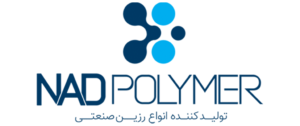Introduction
NAD-1115 is an orthophthalic, medium viscosity unsaturated polyester resin. It is supplied as a solution dissolved in monomeric styrene
NAD-1115 is designed for pipes and fittings, tanks and boats applications.
N.B. Peroxide Catalysts are highly reactive and may decompose with explosive violence, or cause fires, if they come into contact with flammable materials, metals or accelerators. For this reason they must never be stored in metal containers or be mixed directly with accelerators.
Typical properties of liquid resin
| Test method | value | Unit | Properties |
| ASTM D 1544 | <2 | Gardner | Color |
| NA | Clear, Yellowish | NA | Appearance |
| ISO 2114 | 20±5 | mgr KOH/gr Resin | Acid Value |
| ISO 2555 | 300-400 | mPa.s(cps), @25°C | Viscosity |
| ASTM D 1475 | 1.11-1.13 | g/cm3 | Density |
| ISO 3251 | 60-65 | Wt% | Solid content |
| ISO 2535 | 10-20 | Min, @25°C | Gel time |
| ISO 2535 | 13-25 | Min, @25°C | Curing time |
| ISO 2535 | 180±20 | °C, @25°C | Peak exothermic temperature |
| ISO 2535 | 12-30 | °C, @25°C | A |
| ISO 2535 | 22-40 | °C, @25°C | B |
| ISO 2535 | <2 | – | b/a |
Typical Mechanical Properties of Clear Cured Casting
| Test method | value | Unit | Properties |
| ISO 527-2 | 65±5 | MPa | Tensile Strength |
| ISO 527-2 | 3.5±0.5 | GPa | Tensile Modulus |
| ISO 527-2 | >4 | % | Elongation at Break |
| ISO 178 | 110±10 | Mpa | Flexural Strength |
| ISO 178 | 3.5±0.5 | Gpa | Flexural Modulus |
| ISO 75-2 | 70±5 | °C | Heat Distortion Temperature |
| ASTM D2583 | 40-45 | – | Barcol Hardness |
| ASTM D2566 | 1-2 | % | Liner Shrinkage |
| ISO 62 | 0.2-0.4 | % | Water Absorption |
Formulation for Room Temperature Curing
| MATERIAL NAME | PRPERTISE | QUANTITY |
| MEKP A60 | CATALYST | 1.5 |
| COBAL OCTOATE 10% | ACCELERATOR | 0.1 |
Post Curing
For most applications, where the moulded product will be used at ambient temperatures, satisfactory laminates can be produced without post curing at elevated temperatures, provided workshop temperatures are not below 20°C.
For more critical applications, where optimum properties are required, or where the service temperature of the moulding will be above ambient temperature, post curing at elevated temperature is recommended.
The optimum temperature for NAD-1115 is 80°C. After release from the mould, laminates should be allowed to mature for 24 hours at a workshop temperature of not less than 20°C. before being post cured. Place the part in an oven, suitably supported to prevent warping, and increase the temperature from ambient to 80°C in 10°C stages.
Leave the moulding at 80°C for three hours, and then switch the oven off. Allow the moulding to cool slowly in the oven. Post curing is most effective if it is carried out immediately after the 24-hour maturing period.
Storage Conditions
NAD-1115 is a product sensitive to temperature,light & oxidation. Hence should be stored indoors in dry place at a temperature between 5 and 25°C. Keep always in the original, unopened and undamaged containers.Avoid keeping material exposed to sunlight.
NAD-1115 should be stored in the dark in suitable closed containers. It is recommended that the storage temperature should be less than 20ºC here practical, but should not exceed 30ºC. Ideally, containers should be opened only immediately prior to use. Where they have to be stored outside, it is recommended that drums be kept in a horizontal position to avoid the possible ingress of water.
Packaging
NAD-1115 is supplied in 200kg drums.
Health and Safety
Please see the applicable Material Safety Data Sheets, depending on the curing system used.
All information on this data sheet is based on laboratory testing and is not intended for design purposes. Nadpolymer makes no representations or warranties of any kind concerning this data. Due to variance of storage, handling and application of these materials, Nadpolymer cannot accept liability for results obtained. The manufacture of materials is the subject of granted patents and patent applications; freedom to operate patented processes is not implied by this publication.


